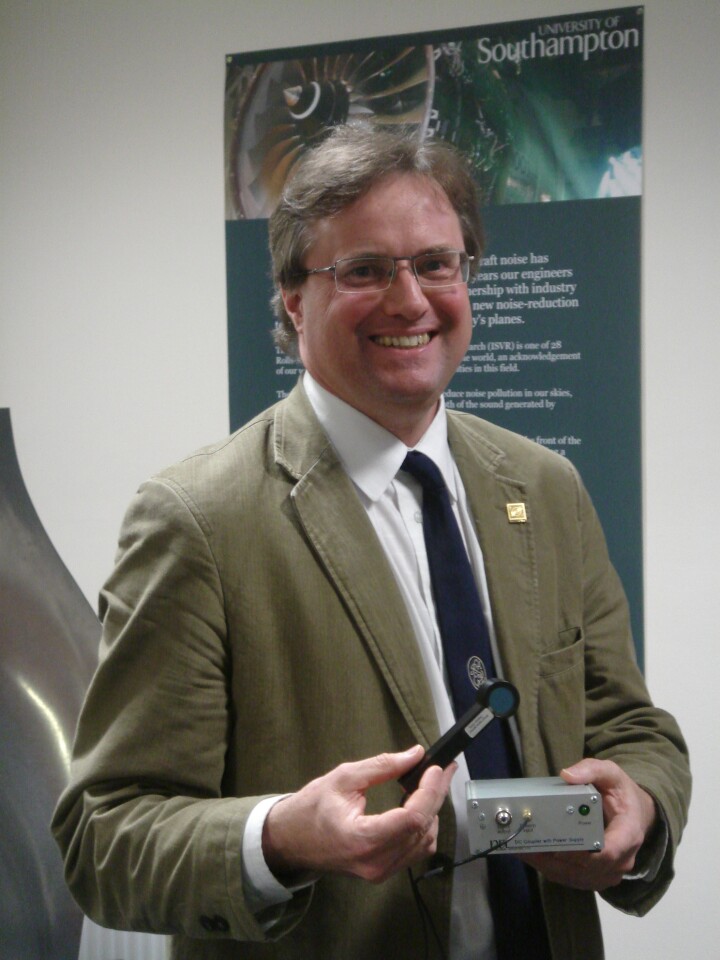When kidney stones can’t be dissolved using medication, the next step is usually a procedure known as shock wave lithotripsy. This involves focusing a series of high-intensity acoustic pulses onto the stones, until they break apart to the point that they can be passed in urine or dissolved by drugs. Using current monitoring techniques, however, it can be difficult to tell when and if that point has been reached. A new device known as the Smart stethoscope lets clinicians know, by listening.
The stethoscope was developed by Prof. Tim Leighton from the University of Southampton, in collaboration with Guy's and St. Thomas' Foundation Trust (GSTT) and UK-based tech firm Precision Acoustics Ltd.
Its handset is placed against the patient’s skin, where it monitors the lithotripsy-delivered shock wave pulses as they echo off the kidney stone. As long as the stone remains intact, those echoes have a sort of “tick” sound – once it’s shattered, however, they become more of a “tock.”

The use of a monitoring system such as the Smart stethoscope not only means that patients won’t receive any more of the painful shocks than necessary, but also that the procedure won’t unknowingly be stopped prematurely – currently, over half of all patients are sent home before their stones have been sufficiently shattered. Additionally, the device can be used to assess whether or not a patient’s kidney stones will respond to lithotripsy in the first place, so they won’t have to go through the procedure if an alternative is what’s needed.
Presently, lithotripsy patients’ stones are monitored using a fluoroscopic X-ray system or ultrasound. Unlike X-rays, however, the Smart stethoscope delivers no harmful radiation. It’s also relatively inexpensive, simple to use, and is reportedly very accurate – in clinical trails of over 200 patients, it’s achieved an accuracy rate of 94.7 percent. By contrast, clinicians using a conventional “state-of-the-art equipment suite” managed just 36.8 percent.
The Smart stethoscope is currently being developed commercially in a partnership with Precision Acoustics.
A paper on the research was recently published in the journal Proceedings of the Royal Society A.
Source: University of Southampton






